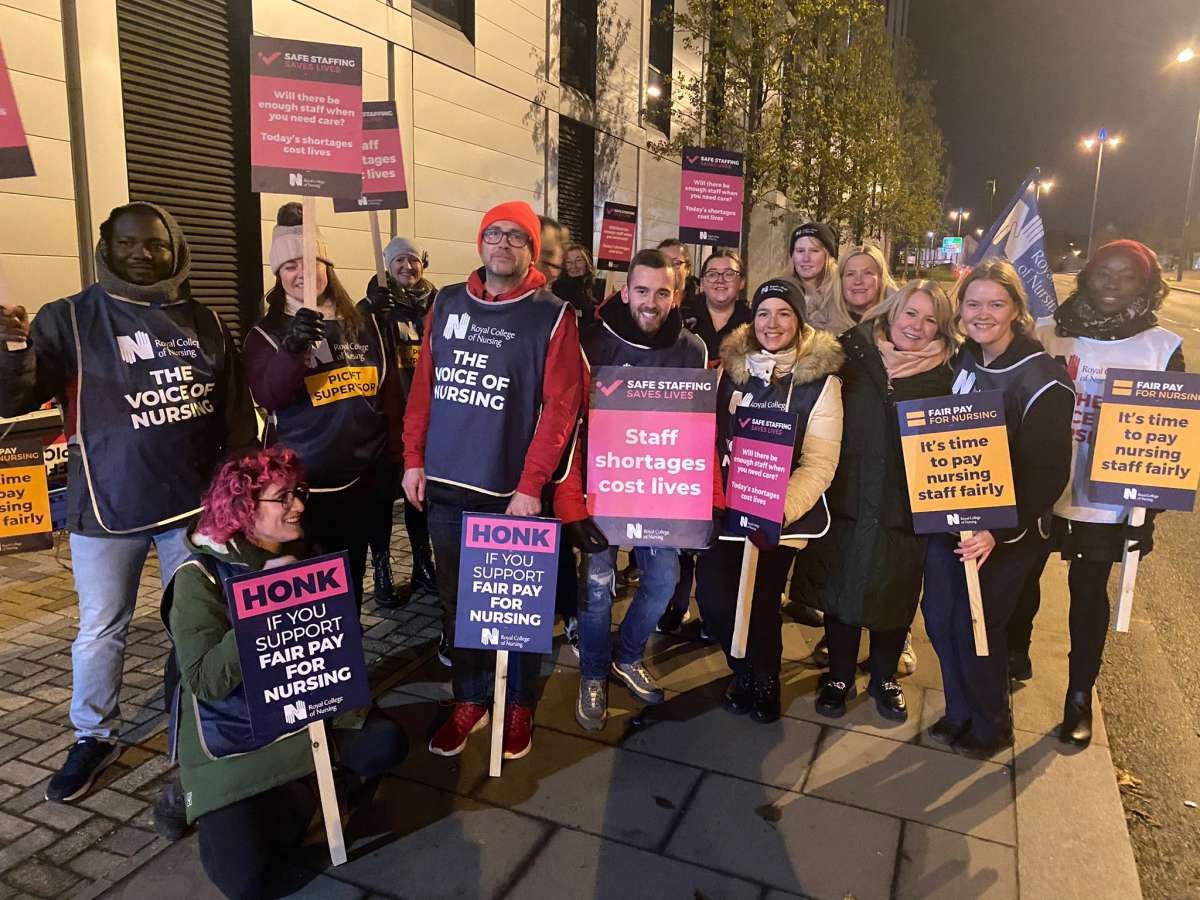Railway workers, ambulance drivers, postal services, border police and airport staff have all gone on strike at the end of the year and there are further walkouts planned at the start of 2023…reports Asian Lite News
Paramedics across the country will strike on Wednesday, amid a wave of industrial action not seen in the country’s recent history.
Nurses walked out on Tuesday over pay and what they see as years of neglect and underfunding in the country’s public health service, the NHS.
The UK government has so far refused to compromise, claiming their pay demands are unaffordable.
Buckling under-inflation of 10%, Britain is currently experiencing the largest spate of industrial action since the 1970s and 80s.
Railway workers, ambulance drivers, postal services, border police and airport staff have all gone on strike at the end of the year and there are further walkouts planned at the start of 2023.
Paramedics will go on strike over pay tomorrow, with Unions saying a firm promise from government must be put on the table.
The action comes at a time when the NHS is already grappling with the worst ambulance handover times on record, which experts have put down to system-wide pressures, such as staffing and bed shortages.
In September, the BBC reported on “appaling” waits for ambulances, with paramedics taking up to 40 hours to reach patients.
Officials fear the strike could have significant repercussions at hospitals, as the government mobilises some 750 soldiers to replace striking paramedics.
Health Secretary Will Quince called on the public to avoid “risky activities” on Thursday, including a jog on an icy road, contact sports, or even a “pointless car ride”.
An official from the NHS called for taking “reasonable steps”, including “drinking responsibly”.
“Many NHS leaders are telling us that they cannot guarantee patient safety tomorrow,” said Matthew Taylor, director of the NHS Confederation which represents hospitals in England.
“Clearly we have entered dangerous territory,” he wrote in a letter to Prime Minister Rishi Sunak.
He urged the UK leader to quickly put an end to the conflict between the government and the unions, asking him to “negotiate” on wages.
Health Minister Steve Barclay met with the unions on Wednesday, without putting forward a solution.
“It’s disappointing that some unions are continuing their strike action – my door remains open for further discussion,” he tweeted after the meeting.
Onay Kasab, an official of the Unite union, described the meeting as “totally useless” because minsters refused to discuss salaries.
“How does he expect to get things done and resolve the conflict without discussing the key issue?” he asked.
Nurses enjoy strong support amongst the British public for their role on the front lines of the COVID pandemic, which has brought a highly respected free public health system to its knees.
According to a YouGov poll published on Tuesday, two-thirds of Britons support nurses’ strikes. This popularity puts pressure on the Conservative government, which has so far shown itself to be inflexible.
It has refused to raise nurses’ salaries beyond the 4.75% planned for this year, which corresponds to the recommendation of an expert body.
Ambulance strike causing deep worry, say NHS bosses
Patient safety cannot be guaranteed during today’s strike by ambulance workers in England and Wales, health bosses have warned.
But NHS England says emergency care will continue to be provided. People are being asked to use services “wisely” and only call 999 in a life-threatening emergency – with 111 online the first port of call.
Ambulance response times are already twice as long as two years ago and there is a huge strain on A&Es.
In England, eight out of the 10 major ambulance services have declared critical incidents – a sign of the intense pressure they are already under. Ministers have urged the public to take extra care and suggested they avoid contact sports and unnecessary car journeys.
Unions say life-threatening callouts will continue to be responded to over the next 24 hours but some urgent calls, for example for late-stage labour or a fall in the home, might not be answered.
No industrial action is taking place in Northern Ireland and Scotland, and there will be no strikes in the east of England or the Isle of Wight.
But elsewhere, there is likely to be major disruption as paramedics, call handlers, emergency care assistants and technicians go on strike. About 750 armed forces staff are being drafted in to cover the walkouts, however their role will be limited. They will not be sent on call-outs involving critical care, nor will they provide any clinical care.
Writing in the Daily Telegraph, Health Secretary Steve Barclay said: “We now know that the NHS contingency plans will not cover all 999 calls. Ambulance unions have made a conscious choice to inflict harm on patients.”
But Rachel Harrison, national secretary of the GMB Union, accused the government of insulting NHS staff by claiming they are making a conscious choice to inflict harm on patients.

